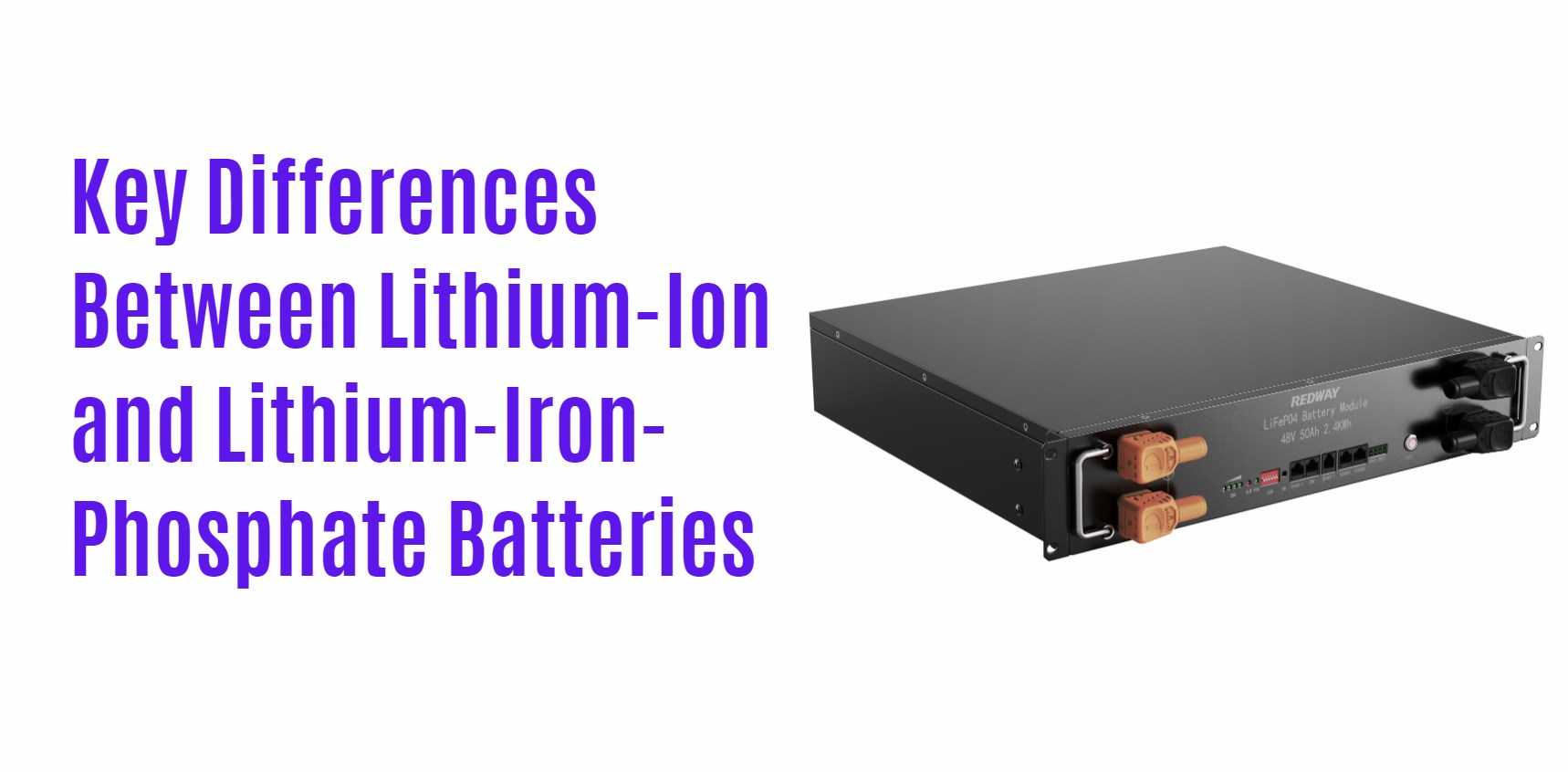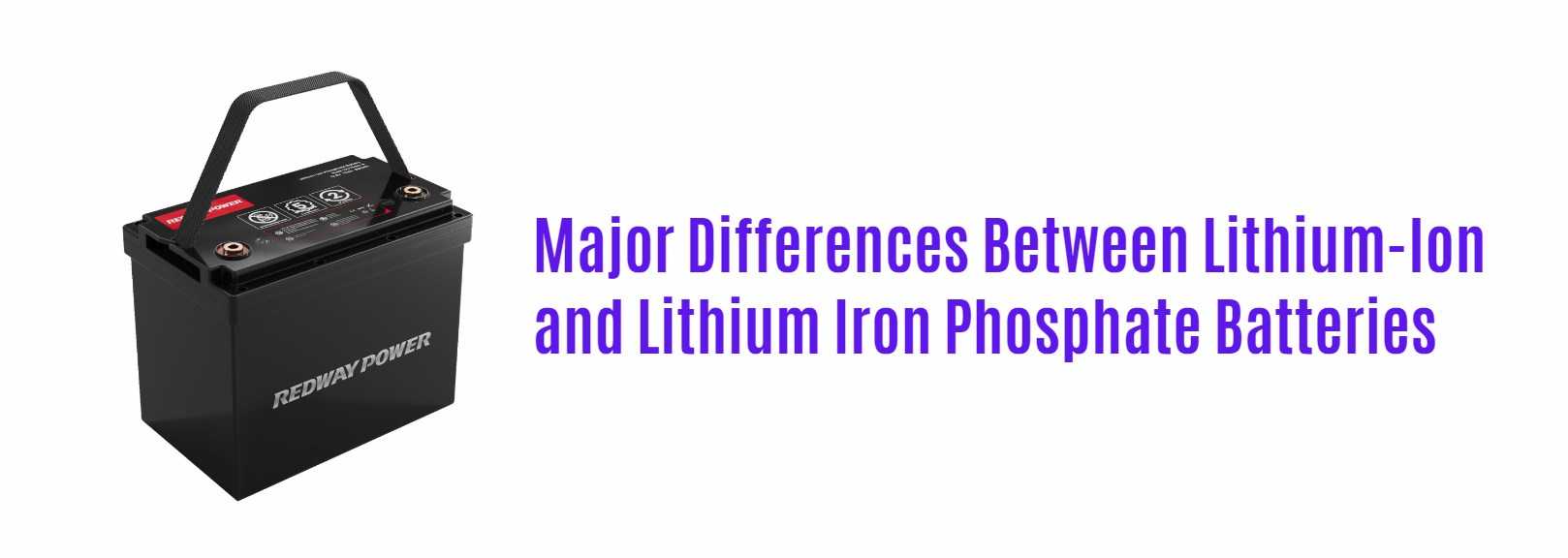At Redway Battery, we delve into the intricate differences between lithium-ion (Li-ion) and lithium iron phosphate (LiFePO4) batteries to aid your informed decision-making for various applications.
Battery Types: Lithium-Ion
Lithium-ion batteries are ubiquitous in modern electronics due to their high energy density, making them ideal for devices like smartphones, laptops, and electric vehicles. Despite their compact size, they pack significant power and durability. The rapid charging capability of Li-ion batteries caters to scenarios demanding quick turnaround times, although this can impact long-term battery life.
Battery Types: Lithium Iron Phosphate
Lithium iron phosphate (LiFePO4) batteries are gaining popularity, particularly in electric vehicles and renewable energy storage. Renowned for their superior safety profile and extended lifespan, LiFePO4 batteries excel in demanding environments. They exhibit robust performance across a wide temperature range (-20°C to 60°C), mitigating risks of overheating and thermal runaway seen in other lithium battery types.
Wholesale lithium golf cart batteries with 10-year life? Check here.
Key Advantages of LiFePO4 Batteries
- Safety: LiFePO4 batteries are inherently safer than Li-ion batteries, with reduced risks of explosion or fire.
- Cycle Life: They endure more charge cycles with minimal capacity loss compared to Li-ion batteries.
- Temperature Range: Operating effectively in extreme temperatures, LiFePO4 batteries are reliable in harsh conditions.
- Self-Discharge: They maintain charge over longer periods due to lower self-discharge rates.
- Applications: Ideal for scenarios requiring longevity and reliability, such as emergency power backups and off-grid renewable energy systems.
Major Differences Between Lithium-Ion and Lithium Iron Phosphate Batteries
Safety and Durability
LiFePO4 batteries are recognized for their safety, attributed to their stable chemistry that minimizes risks of thermal runaway, explosion, or fire. In contrast, while lithium-ion batteries offer high energy density, they are more prone to safety incidents under extreme conditions.
Longevity and Performance
LiFePO4 batteries boast a longer lifespan, enduring significantly more charge cycles without noticeable degradation. This makes them preferable for applications prioritizing durability and consistent performance over time.
Want OEM lithium forklift batteries at wholesale prices? Check here.
Environmental Adaptability
Operating efficiently across a broader temperature range gives LiFePO4 batteries an edge in diverse environmental conditions, from freezing winters to scorching summers.
Charging Efficiency
While lithium-ion batteries excel in rapid charging capabilities, this advantage comes at the cost of reduced long-term battery life. LiFePO4 batteries, though slower to charge, maintain their performance parameters over a longer operational lifespan.
Conclusion
Both lithium-ion and lithium iron phosphate batteries cater to distinct needs in various applications. The choice between them hinges on specific priorities such as energy density, charging speed, safety, and lifespan requirements. For applications demanding enhanced safety, longevity, and operational reliability, LiFePO4 batteries emerge as the superior choice. Conversely, where rapid charging and high energy density are critical, lithium-ion batteries may be more suitable.
To explore further and find the ideal battery solution for your needs, contact Redway Battery today. Our expertise ensures tailored advice to optimize your battery selection process. We offer a range of both Li-ion and LiFePO4 batteries, designed to meet diverse industry needs and backed by our commitment to quality and safety.







